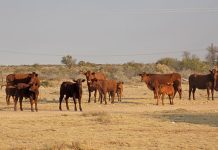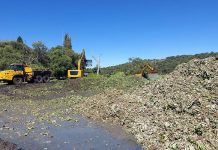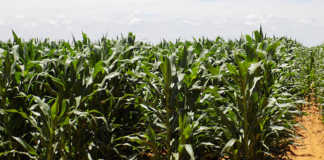This, despite the fact that stock theft is one of the most severe problems in the livestock industry. However, industry representatives believe progress is being made. “The police have signed a document stating that these KZN posts will be advertised and they will try to get the right people to fill the posts,” said Red Meat Producers’ Organisation (RPO) KZN stock theft coordinator, Herman de Wet.
“They have a written recommendation to start another two stock theft units and four satellite units in KZN, which needs authorisation at national level. There is still a lot of work to be done, but at the highest provincial level, the will is there.” De Wet said more manpower was needed to catch stock thieves and dedicated prosecutors should be in place to increase the success rate of stock theft prosecutions.
“Border communities must be educated and paid for their assistance. This will ensure we get information which the police must follow up with dedicated prosecutors,” he said. National Stock Theft Forum committee chairperson Jaco Maré said at the recent RPO congress that from 1 April 2010 to 31 March 2011 cattle theft had stabilised, while the number of cattle recovered had increased by 6%. Theft of sheep remained constant but recovery had decreased by 4%.
“A total of 61 220 cattle were stolen in 2010/2011 of which 24 966 were recovered. In 2009/2010, 60 600 cattle were stolen, of which 25 458 were recovered. In the case of sheep and goats, 127 647 were stolen in 2009/2010, of which 29 672 were recovered,” Maré said.
The National Stock Theft Forum, represented by all role players in the red meat industry, as well as state departments such as agriculture, the police and the defence force, was in the process of implementing a number of recommendations. These included asking police to fill all vacancies in stock theft units; establishing permanent training capacity for prosecutors and stock theft unit members; creating mobile reaction units; finalising the Pounds Act; changing legislation for heavier sentences; and creating incentives for policemen and women who deliver outstanding service, Maré said.
“However, it is imperative that we as producers do our bit by marking stock, keeping stock registers up to date, reporting stock theft, keeping correct transport documentation and referring any problems to the relevant provincial stock theft committees.”
Serious cases of animal abuse, such as the breaking of sheep’s legs, were increasing during stock theft. Livestock Welfare Co-ordinating Committee chairperson Prof Gareth Bath stressed the importance of pressing charges of animal cruelty against such thieves.
“Use your cell phone, set with the date and time, and take photos of the injured livestock. These photos are convincing evidence of the animal cruelty involved and we can increase convictions. The stock theft unit is very good at using this as evidence of aggravating circumstances,” Bath said.










